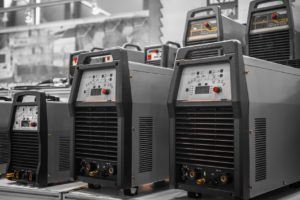Discover How To Use The Power of Authority Marketing To Make You Money While You Adventure!
No Experience, Existing Product Or Technical Skills Are Required
DO YOU BELIEVE ADVENTURES ARE WORTH CHASING?
We're an affiliate.
We hope you love the products/services we recommend on Just Van Life! So you know, there is the possibility we will collect a commission should you make a purchase via any of our links. This will in no way affect the purchase price. Thank you for your support, we really appreciate it!

An inverter is used in the home to convert direct current (DC) to alternating current (AC). This helps the power from the electrical grid to be transferred into a usable power source for your home appliances.
It can be incredibly annoying and inconvenient when your inverter cuts out. If it continuously cuts out this could lead to more lasting issues in your home and could potentially cause electrical damage to your belongings.
We have listed below some of the most common reasons why your inverter may be cutting out. As with anything electrical, there are health risks involved with manipulating the circuitry.
If you do not feel confident in your ability to fix the system, we recommend consulting a qualified professional electrician for further assistance.
Why does my inverter cut out?
There are 4 main reasons why your inverter may cut out.
Insufficient sunlight
A lot of inverters function through solar power. This means that they rely on the presence of sunlight to generate an electrical current. If there is insufficient sunlight reaching the solar panels then there will not be enough power supplied to your inverter.
Once the inverter has worked through its power store, it will cut out as there is no longer electricity to allow it to function. This issue will often solve itself when sunlight hits the solar panels again.
To fix this, you should position your solar panels in a place where they will receive the maximum daily sunlight possible. They should not be covered or obstructed by anything as this diminishes their effectiveness.
Electrical grid failure
If the electrical grid fails, the inverter will cut out automatically as a safety precaution. This is because the regulator and earth leakage switch deactivates meaning that no power is transported.
The energy generated by the solar panels is held for a short term within the inverter. The mechanisms constantly monitor the voltage and frequency coming from the electrical grid. The generated power is adjusted according to the readings taken.
When the time is correct, the inverter sends the electrical energy into the grid. This means that power outages force the inverter to cut out. This is a legal requirement and is completely vital for all inverters to do.
Battery charge
If your inverter has sufficient sunlight and the electrical grid is functioning properly, there may well be an issue with the battery itself. You should check that none of the component parts are damaged, and that the wires are all connected properly.
As the age of your inverter increases, so does the potential for damage caused by wear. The older batteries are, the more prone they are to becoming faulty. Try to replace the battery and see if this resolves your issues.
If you have replaced the battery and have noticed no improvement, the issues may be caused by melted fuses or burnt rectifiers. Please contact a professional electrician to check over your inverter.
Inverter failure
If you have tried a variety of solutions to fix the issues with your inverter and nothing is working, you are likely to have a faulty inverter. This is a natural consequence of usage over time and should not cause you too much stress.
Check the inverter screen for operational error messages. If any are displayed, consult the owner’s manual to see what they are indicating. The manual is likely to then show you the necessary steps to take to rectify the issue.
If you are not confident with fixing the mechanism yourself, it may be wise to contact a qualified electrician. They will know how to solve the problem with minimal effort required and without injuring themselves.
Overuse
Overuse of an inverter can cause wear over time. This can eventually lead to it cutting out due to continually operating beyond its limits. You should regularly perform maintenance checks on your inverter to ensure the correct functionality.
Extremes of voltage
Both high and low voltages running through your inverter can cause real issues with its functionality. This can then lead to your inverter cutting out.
High voltages running through the inverter means that it cannot convert all of the electrical energy running through. As a self-preservation mechanism, the inverter will shut off automatically if it becomes overwhelmed.
This could be caused by an overly thin connection cable, or an overall voltage in excess of 240V. You could also consider including some fuses and circuit breakers into your inverter to reduce the voltage.
Low voltages can also cause your inverter to cut out. This is because there is not sufficient electricity traveling through the circuit. This will reduce the functionality to a point at which the inverter will just cease to operate altogether.
How long should an inverter last?
There are many different variations of inverters, all of which have different lifespans. A solar inverter can vary between 10 and 25 years. The string inverters tend to break more rapidly and you are looking at a maximum lifespan of around 15 years.
Microinverters and DC optimizers are likely to last 20 to 25 years. Off grid battery based inverters deteriorate much more rapidly. They are likely to break within 2 and 10 years.
Generally speaking, the inverter is likely to need at least one replacement within the lifespan of the solar panels themselves.
There are many variables that influence the length of the lifespan of your inverter. These include the operating temperature, the ambient humidity, and the amount of maintenance performed on the inverter.
The higher the temperature and the humidity, the more rapidly your inverter will deteriorate. The manufacturing materials and quality also hugely impact the longevity of the inverter as certain materials are more durable than others.
A good way of estimating the lifespan of your inverter is to look at the warranty period offered by the manufacturer. This should give you a good idea as to how long they expect the inverter to be functional, and for how long the repairs will be subsidized.
Discover How To Use The Power of Authority Marketing To Make You Money While You Adventure!
No Experience, Existing Product Or Technical Skills Are Required
DO YOU BELIEVE ADVENTURES ARE WORTH CHASING?
